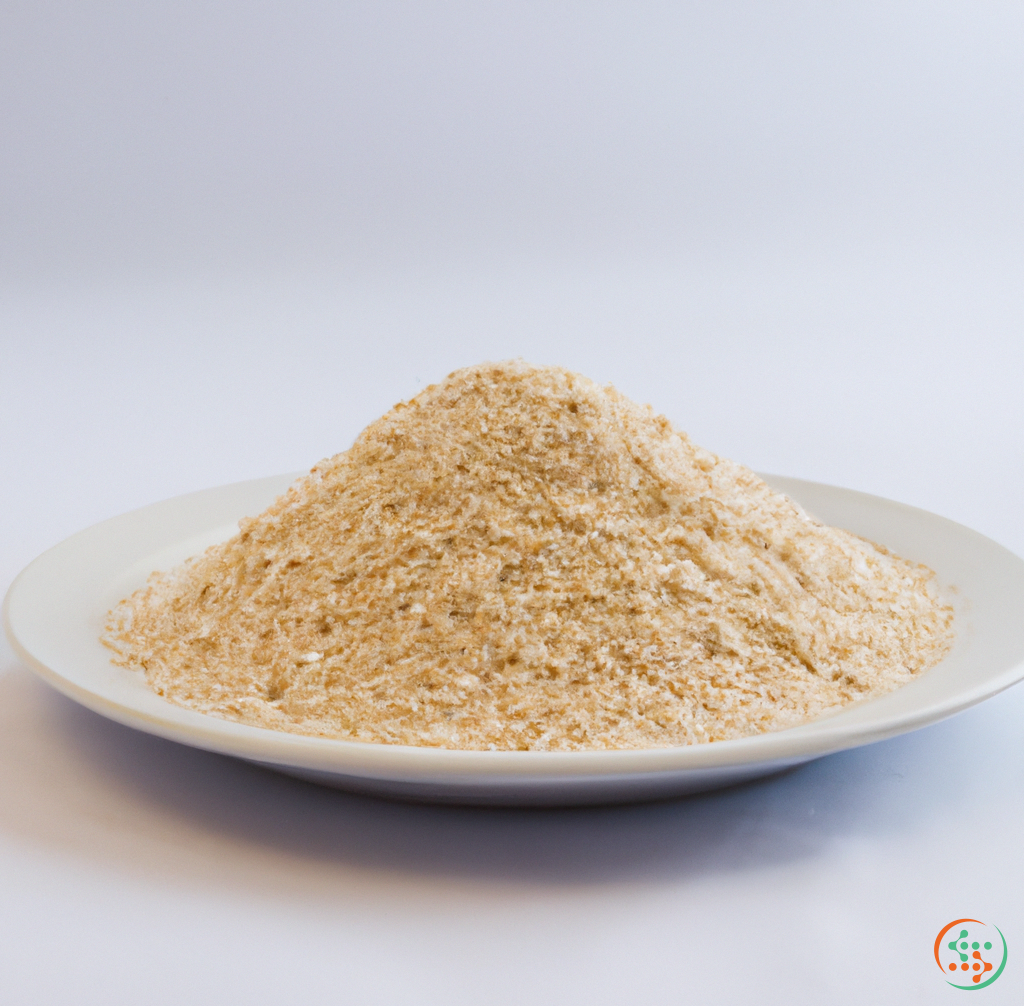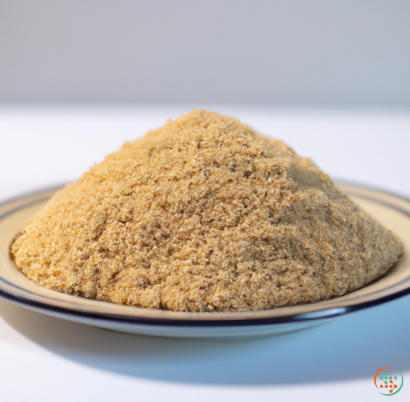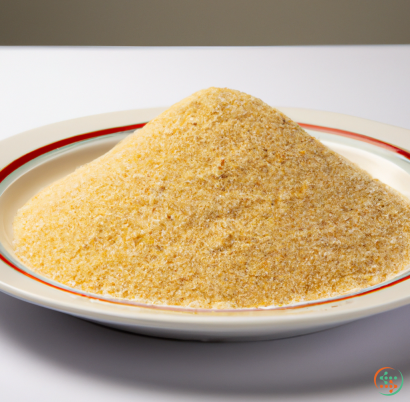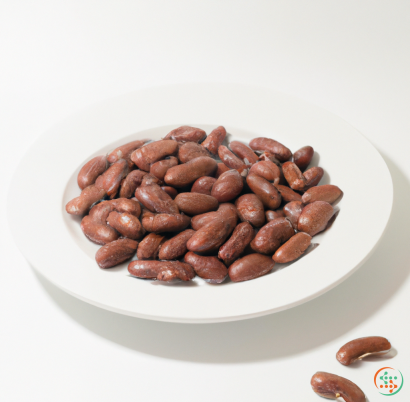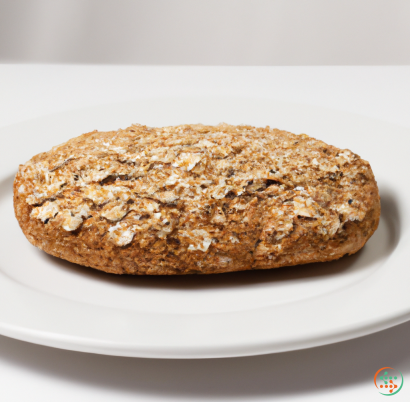Oat Flour
Oat flour is a nutritious, gluten-free flour made from oats. It has become increasingly popular in recent years for its health benefits and versatility. Oats are considered to be one of the healthiest grains and are one of the most nutrient-dense carbohydrates available. Oat flour also has a unique flavor and texture which makes it a great alternative to traditional wheat flour.
Oats are complete grains, meaning they contain all three of the essential components necessary for human digestion: proteins, fats, and carbohydrates. As a result, they are jam-packed with vitamins, minerals, antioxidants and other important nutrients. Oats are an excellent source of energy and provide you with slow-burning carbohydrates that may provide sustained energy throughout the day. In addition, types of oats, like steel cut and rolled oats, have been shown to contain a powerful soluble fiber known as beta-glucan that has been linked to health benefits such as lower cholesterol levels.
Therefore, oat flour is a great choice for making a variety of recipes, ranging from bread and pastry dough to cookies and muffins. Oat flour not only offers a unique flavor, but also adds a unique nutritional benefit -- it is higher in antioxidants than whole wheat flour and is also naturally high in protein, with about 6-7 grams per ¼ cup (about 28 grams). It also provides some essential minerals like magnesium and iron, along with vitamin B6, folate and lutein.
For those avoiding gluten, oat flour is a great alternative since it does not contain gluten. It also makes a great flour for baking bread, as it does not rise as much as wheat flour and it produces a drier and denser texture that is both substantial and light. Oat flour is also easy to make; merely blend whole oats in a blender or food processor until a flour-like consistency is achieved. Oat flour can then be used in place of all-purpose flour in almost any recipe. Additionally, oat flour can be used to thicken soups and sauces and makes a wonderful coating for fried foods.
Apart from being a great alternative to grains, oat flour can also have a major impact on digestion. Oats are high in fiber and provide a number of health benefits, such as reducing blood cholesterol levels and managing weight. The soluble fiber in oats is also excellent for binding with water in the digestive system, hence promoting healthy digestion and regularity.
In terms of taste, oat flour is mildly sweet and has a slightly nutty flavor. The texture of the flour is quite coarse and slightly sticky, making it the perfect choice for recipes such as cookies, muffins, and pancakes. Oat flour can also be used in combination with wheat flour in a variety of recipes – from breads, to pancakes, to cookies – by substituting half of the wheat flour with oat flour.
Unfortunately, oat flour does tend to spoil quickly, just like regular oatmeal. Therefore, it should be stored in an airtight container and used within a few days. It is also not as shelf-stable as wheat flour and should be refrigerated if not used immediately. Despite these negatives, oat flour is a great alternative to traditional wheat flour and is packed with vitamins and minerals that can provide great health benefits.
How Oat Flour Travels from Farm to Plate
When someone takes a bite of a warm, fluffy and delicious piece of oat-based bread or a bowl of oatmeal, they might not think about the long journey it took for their food to make it to the dinner table. But it started at a farm, with oat seeds planted in the ground and harvested months later. From there, the oat grains need to be processed into flour, transported, stored, and prepared before they eventually reach our plates. The following is an exploration of how oat flour — from its beginnings on the farm to its final destination — is created and travels to end up at a dinner table.
The Natural Growth of Oats
The growth of oats begins with the planting of oat seeds in a field. Depending on the variety of oats, it will take approximately 75-90 days for the oats to reach maturity. Over this window of time, oats require sun, warmth, and adequate soil moisture in order to flourish.
Once the oats are mature, the field is ready for harvesting. There are two methods of harvesting oats: machine reaping or hand cutting. Both techniques will get the oats off the stalks and into a bundle to be taken to a threshing separation machine.
Most of the machine harvesting of oats happens on flat fields, due to the fact that combining in undulating areas can cause major losses. Harvest time is dependent on the region and the variety of oats being grown, but typically happens between mid-August and mid-September.
From Farm to Mill
Once the oats are harvested, they are either taken directly to a mill for processing or stored for short-term use. If the oats are stored, it is important to keep them dry, since wet oats will spoil quickly. The oats are stored in a ventilated commercial storage facility to minimize heat and moisture until they are milled into flour.
At the mill, the oats are cleaned and processed to remove any debris or foreign materials, and then they are measured and weighed. The oats are then hulled — the process of removing the hard outer protective covering of the oat grain. This process reduces the oat’s overall weight, resulting in flour with less protein, fat and fibre, but with a finer texture.
The oats are then milled into oat flour. The oat flour is passed through machines that grind the oats into a fine powder that is then packaged into bags, sacks, or containers. Once the product is ready, it is shipped out and sent to grocery stores, bakeries, and other food retailers.
Transporting, Storing and Preparing
The next step on the journey of oat flour is transporting and storing. The oat flour is packaged in bags, sacks, or containers that are stacked on pallets and loaded onto trucks for transportation to its final destination. During this process, the temperature and humidity need to be closely monitored to make sure that the moisture level of the flour stays consistent.
Once the oat flour arrives at its destination, it is stored in a building that is safe from outside elements to maintain the quality of the product. If the oat flour is being stored for longer periods of time, it must be kept away from moisture, light and heat. It is also important to label all containers, so that it is easy to keep track of the product and expiration date.
The last step in the journey of oat flour is preparation. The oat flour can either be used as is, without any additional processing, or it can be mixed with other ingredients to make oat-based products like oatmeal, oat bran, oat cake, oat pancake mix, oat-based muffins, and oat-based bread.
Conclusion
Oat flour is an important, nutritious and versatile food source that plays an essential role in the diets of many people around the world. It takes an incredible amount of work and effort from start to finish for an oat grain to make its way onto a dinner plate. From planting, harvesting, milling, storing, and preparing, oat flour has a long and complicated journey to get to its final destination. Despite its complex creation path, it is worth it due to the nutritious and delicious dishes that it can provide.
| Vitamin E | 0.7 mg | |
| Vitamin K | 0.0032 mg | |
| Vitamin B1 | 0.69 mg | |
| Vitamin B2 | 0.13 mg | |
| Vitamin B3 | 0.00147 grams | |
| Vitamin B4 | 0.0299 grams | |
| Vitamin B5 | 0.2 mg | |
| Vitamin B6 | 0.13 mg | |
| Vitamin B9 | 0.032 mg |
| Calcium | 0.055 grams |
Daily Value 1.3 g
|
| Iron | 0.004 grams |
Daily Value 0.018 g
|
| Magnesium | 0.144 grams |
Daily Value 0.4 g
|
| Phosphorus | 0.452 grams |
Daily Value 1.25 g
|
| Potassium | 0.371 grams |
Daily Value 4.7 g
|
| Sodium | 0.019 grams |
Daily Value 2.3 g
|
| Zinc | 0.0032 grams |
Daily Value 0.011 g
|
| Copper | 0.44 mg |
Daily Value 0.9 mg
|
| Manganese | 0.00402 grams |
Daily Value 0.0023 g
|
| Selenium | 0.034 mg |
Daily Value 0.055 mg
|
| Glucose | 0.1 grams |
|
| Sucrose | 0.5 grams |
|
| Total Sugars | 0.8 grams |
per 100g
|
| Lauric acid (12:0) | 0.03 grams |
|
| Myristic acid (14:0) | 0.01 grams |
|
| Palmitic acid (16:0) | 1.36 grams |
|
| Stearic acid (18:0) | 0.09 grams |
|
| Total Saturated fatty acids: | 1.49 g | |
| Oleic acid (18:1) | 2.85 grams |
|
| Palmitoleic acid (16:1) | 0.01 grams |
|
| Total Monounsaturated fatty acids: | 2.86 g | |
| Linolenic acid (18:3) | 0.15 grams |
|
| Linoleic acid (18:2) | 3.19 grams |
|
| Total Polyunsaturated fatty acids: | 3.34 g | |
